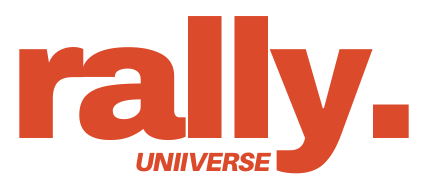
Crossing Borders: How We Plan Safe and Legal Overland Routes Through the Middle East
Planning an overland route across the Middle East isn’t just about choosing scenic roads or plotting GPS coordinates. It’s a complex logistical process that requires legal precision, geopolitical awareness, and on-the-ground experience. At RallyUniverse, we don’t leave anything to chance. When you’re crossing multiple borders—some of which are in active conflict zones, or require specialized permissions—planning becomes just as critical as the adventure itself.
One of the first things we do is assess the political stability and current security situation in each country along the route. This isn’t based on headlines or assumptions—we speak directly with local contacts, embassies, and drivers who are regularly on the ground. We monitor government advisories, but we also take them with context. For example, parts of Iraq are completely off-limits, while others—especially in the north (Kurdistan Region)—are open, secure, and have even been popular among adventure travelers in recent years. But knowing which roads are safe and which towns to avoid takes more than Google Maps. It takes real, updated intel.
Once we’ve established a viable corridor, the legal work begins. Each country has different requirements for overland entry. In most cases, your vehicle must be documented properly—that includes an international carnet de passage (where applicable), green card insurance, and ownership documents. In countries like Saudi Arabia, for example, your name must match the vehicle registration exactly—or you need a notarized power of attorney and a translated copy of the documents. It sounds simple, but one missing stamp can get you turned around at the border, or worse, impounded.
Visas are the next big hurdle. Many countries in the region require advance visa arrangements, and the process varies drastically. Some allow e-visas, some require consular visits with a stack of supporting paperwork. What makes it more complicated is that rally-style travel means you’re crossing on wheels, not by plane. Some e-visas, especially for tourist travel, are only valid for airport arrivals—not for land borders. We’ve had to clarify this multiple times with embassies, often receiving contradictory information. That’s why we build relationships with border officials and local fixers. These are the people who know what’s enforced versus what’s “on paper.”
Once you start getting deeper into the region, special permits become a recurring theme. For example, crossing into Saudi Arabia through the remote northern desert may require additional military clearance. Certain provinces in Iraq require notification of your arrival in advance. Some areas in Oman, such as protected nature reserves or military zones, require separate authorizations. None of these are advertised on government websites. We rely on a network of locals and seasoned overlanders to ensure everything is legal and respected.
Cultural knowledge is another layer of safety. Even if you have all your paperwork in order, how you interact with border guards, police, and locals can shape your experience. We brief every participant before departure—not just about driving regulations, but about local customs, religious sensitivities, and even negotiation styles. Something as simple as wearing shorts at the wrong checkpoint, or taking a photo without asking, can escalate unnecessarily if you’re not prepared. We’ve found that a little humility and a few key phrases in Arabic or Kurdish go a long way.
It’s also important to have redundancy in your plan. That means alternative border crossings, optional overnight stops, and vehicle contingency plans. In one of our previous expeditions, a planned border post closed for “technical reasons” with no warning. Because we had a backup route pre-planned—complete with confirmed fuel stops and safe camping areas—we simply rerouted and kept going. No panic, no delay. That kind of flexibility only comes with obsessive planning.
And then there’s the human factor. One of the things we’re proudest of is the trust we’ve built with local partners across the region. These are mechanics in Erbil, off-road guides in Salalah, or government liaisons in Jordan who pick up the phone when we call. Without them, much of this wouldn’t be possible. They’re the real backbone of what we do.
At the end of the day, planning an overland route through the Middle East is a blend of diplomacy, documentation, instinct, and respect. It’s not just about avoiding risk—it’s about understanding where you are and how to move through these regions as a guest, not a tourist. That’s what makes the BBS Rally not only possible—but truly meaningful.
